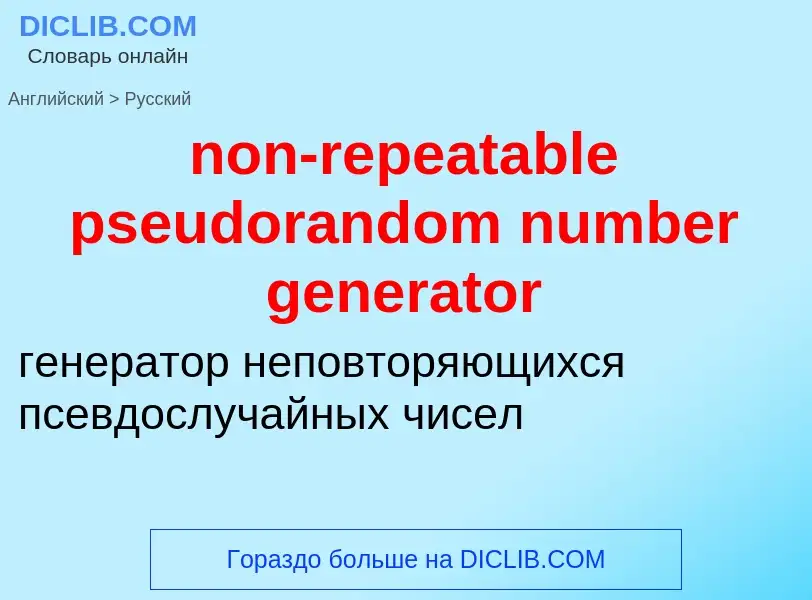Traducción y análisis de palabras por inteligencia artificial ChatGPT
En esta página puede obtener un análisis detallado de una palabra o frase, producido utilizando la mejor tecnología de inteligencia artificial hasta la fecha:
- cómo se usa la palabra
- frecuencia de uso
- se utiliza con más frecuencia en el habla oral o escrita
- opciones de traducción
- ejemplos de uso (varias frases con traducción)
- etimología
non-repeatable pseudorandom number generator - traducción al ruso
математика
псевдослучайная последовательность
Definición
Wikipedia
A pseudorandom number generator (PRNG), also known as a deterministic random bit generator (DRBG), is an algorithm for generating a sequence of numbers whose properties approximate the properties of sequences of random numbers. The PRNG-generated sequence is not truly random, because it is completely determined by an initial value, called the PRNG's seed (which may include truly random values). Although sequences that are closer to truly random can be generated using hardware random number generators, pseudorandom number generators are important in practice for their speed in number generation and their reproducibility.
PRNGs are central in applications such as simulations (e.g. for the Monte Carlo method), electronic games (e.g. for procedural generation), and cryptography. Cryptographic applications require the output not to be predictable from earlier outputs, and more elaborate algorithms, which do not inherit the linearity of simpler PRNGs, are needed.
Good statistical properties are a central requirement for the output of a PRNG. In general, careful mathematical analysis is required to have any confidence that a PRNG generates numbers that are sufficiently close to random to suit the intended use. John von Neumann cautioned about the misinterpretation of a PRNG as a truly random generator, joking that "Anyone who considers arithmetical methods of producing random digits is, of course, in a state of sin."

